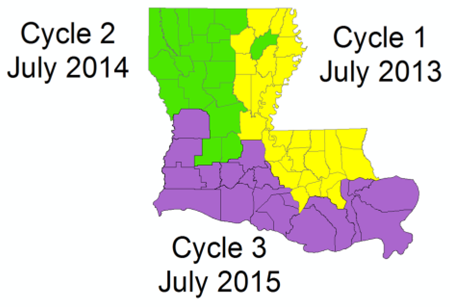|
Search the Noteworthy Practices database Louisiana Department of Transportation and Development Provides Reduced Data-collection Costs to Local Agencies While Ensuring Data ConsistencyOriginal publication: The Louisiana Department of Transportation and Development's Local Agency Data Collection EffortPublication Year: 2014BackgroundThe Louisiana Department of Transportation and Development (LADOTD) recognizes the importance of data-driven operations, design, and safety decisionmaking on both State and local roadways. The State's Strategic Highway Safety Plan (SHSPs) encourages the use of safety data analysis tools that make use of quality crash, roadway, and traffic data to improve safety outcomes. In an attempt to streamline the data collection process and reduce costs, LADOTD has encouraged local agencies and metropolitan planning organizations (MPOs) to join a larger statewide data collection effort. In 2010, LADOTD initiated a multi-year effort to collect roadway inventory data on all public roads in Louisiana. LADOTD began this effort in response to the strong need for roadway data and in anticipation of future requirements for data collection, such as those included in the Moving Ahead for Progress in the 21st Century Act (MAP-21). The agency decided to collect all of the Fundamental Data Elements (FDE) - a subset of the Model Inventory of Roadway Elements (MIRE) identified by FHWA as necessary to enhance safety analyses on all public roads in preparation of a State's SHSP. The Practice - Integrated Data Collection Efforts

Figure 1: Roadway data collection cycles. (Courtesy of LADOTD) Benefits
Publication Year: 2014 |